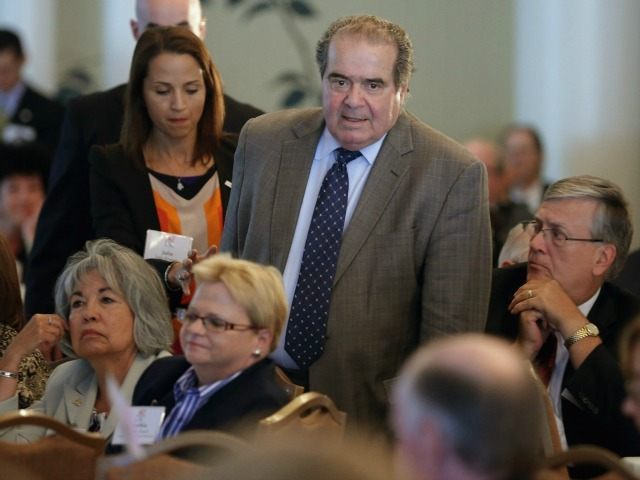The Feb. 13 death of Associate Justice Antonin Scalia gives progressives on the Supreme Court an opportunity to gut the Second Amendment by reinterpreting it as a “collective” right rather than an individual right.
Scalia’s name became synonymous with the individual right to keep and bear arms after the release of his majority opinion for the decisive SCOTUS decision, District of Columbia v Heller (2008).
In that opinion, Scalia showed how phrases that appear in the Bill of Rights again and again share a common meaning, and that references in one amendment match references in others, whether or not the phrase is explicitly or loosely stated.
For example, the phrase “right of the people,” which explicitly appears in the First and Second Amendments, and is loosely expressed in the Ninth Amendment, shares a context that refers to individual rights in every occurrence. “All three of these instances unambiguously refer to individual rights, not ‘collective’ rights, or rights that may be exercised only through participation in some corporate body,” Scalia wrote.
In other words, just as the “right of the people” to assemble in the First Amendment is an individual right, so is the “right to keep and bear arms” in the Second Amendment and the rights not enumerated but protected by the Ninth Amendment.
This is very different from the liberal or progressive approach, where the rights protected by the Second Amendment are viewed as collective, and therefore exist only under certain conditions — for example, the right to own guns exists only for those serving in a government-run militia — and can therefore be expanded, narrowed, or barred by government with impunity.
Heller was released June 26, 2008, and struck down Washington D.C.’s gun ban because it unconstitutionally infringed on each individual’s right to own a gun.
But ever since, news outlets like The New York Times, the Los Angeles Times, and the Associated Press have highlighted their disagreements with the Heller decision and fought to keep the issue alive so a future court can reverse the decision.
The NYT and LA Times have done this by suggesting the individual right to keep and bear arms was created by the judges in 2008. For example, the NYT depended on the opinion of a judge who equated Heller with “judicial activism” and the LA Times editorial board explicitly stated their opinion that the SCOTUS “erred.”
On the other hand, the AP took aim at the right to self-defense. That’s a key right protected by the Second Amendment and a component that is individual in nature, just like the “right of the people” to keep and bear arms or to assemble, along with the various rights not enumerated but protected by the Ninth Amendment.
With Scalia’s death, the nine-justice SCOTUS is evenly divided our to four on whether the second amendment is a individual or collective right. Scalia’s replacement will either maintain the work he did to defend these rights as individual, or will declare those individual rights as collective rights, thereby gutting the Second Amendment.
AWR Hawkins is the Second Amendment columnist for Breitbart News and political analyst for Armed American Radio. Follow him on Twitter: @AWRHawkins. Reach him directly at awrhawkins@breitbart.com.

COMMENTS
Please let us know if you're having issues with commenting.